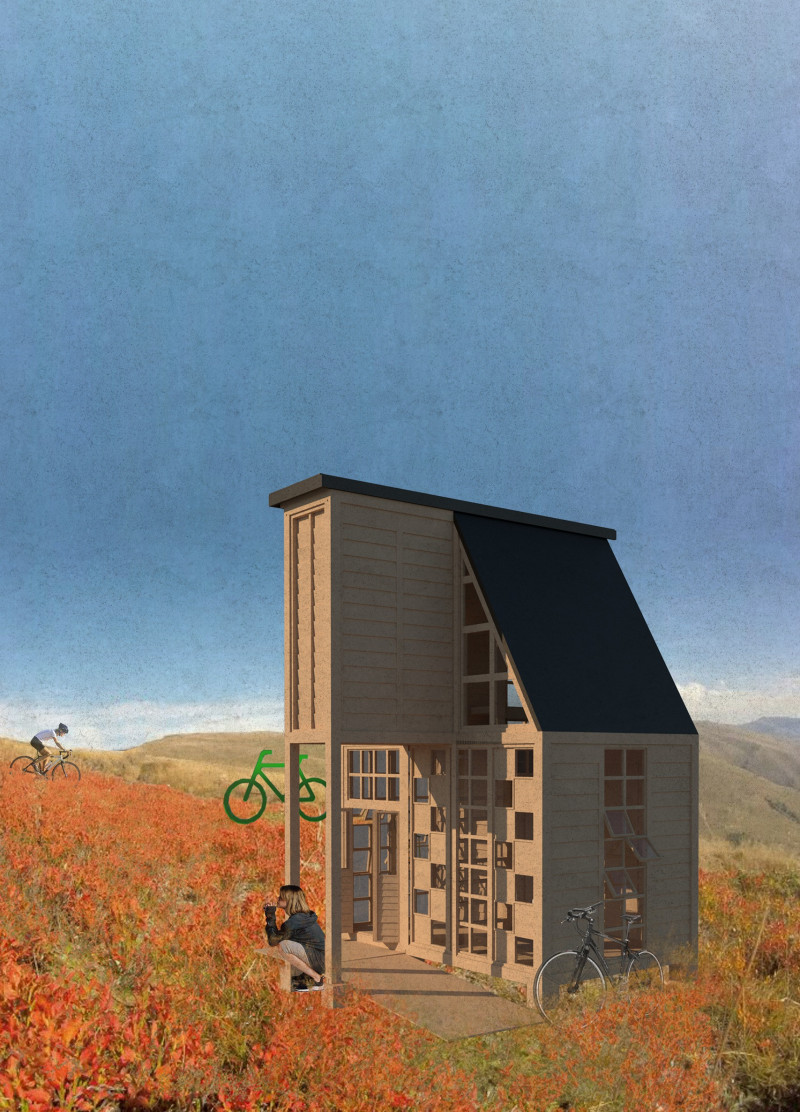5 key facts about this project
Kabin is a modular multipurpose structure designed to serve as rest stops for cyclists along the EuroVelo routes. The project enhances the experience of riders by integrating essential amenities into a functional design. Located in various landscapes, Kabin focuses on flexibility and community interaction, offering a sustainable space for cyclists on long journeys.
Design Concept
The design of Kabin centers on adaptability and user-oriented features. It consists of three types of modules: a basic unit, a rest area, and a sleeping pod. Each module is created to meet specific needs of cyclists. This modular design allows any component to be configured based on local conditions, optimizing space while ensuring comfort and privacy.
Functionality and Space Utilization
Kabin promotes efficient movement with a ramp that makes access easy for cyclists. Inside, the structure has distinct areas that each serve a particular purpose. A spacious dining and living area, with large glass windows, welcomes natural light and offers views of the landscape. This creates an open environment that encourages connection with the outdoors. The bike rack allows cyclists to keep their bicycles secure. Other areas, including the washroom and rest room, provide necessary facilities for long-distance travel.
Sustainable Features
Kabin includes several sustainable elements in its design. Thin-film photovoltaic panels on the roof supply energy for lighting and other basic needs. This focus on environmental responsibility is evident in the rainwater harvesting system, which captures and filters stormwater for drinking. These features not only meet practical needs but also promote wise use of resources.
Structural Integrity and Materials
The structure's modular design uses a wooden framework, which ensures stability and flexibility. Timber columns, panels, and beams form the core of the modules, allowing for easy assembly and disassembly. This approach improves efficiency and practicality in the design process.
As a final design detail, the large glass windows and vibrant signage create a welcoming atmosphere. They connect the interior experience with the beauty of the surrounding nature, inviting cyclists into a functional and comfortable space.


























